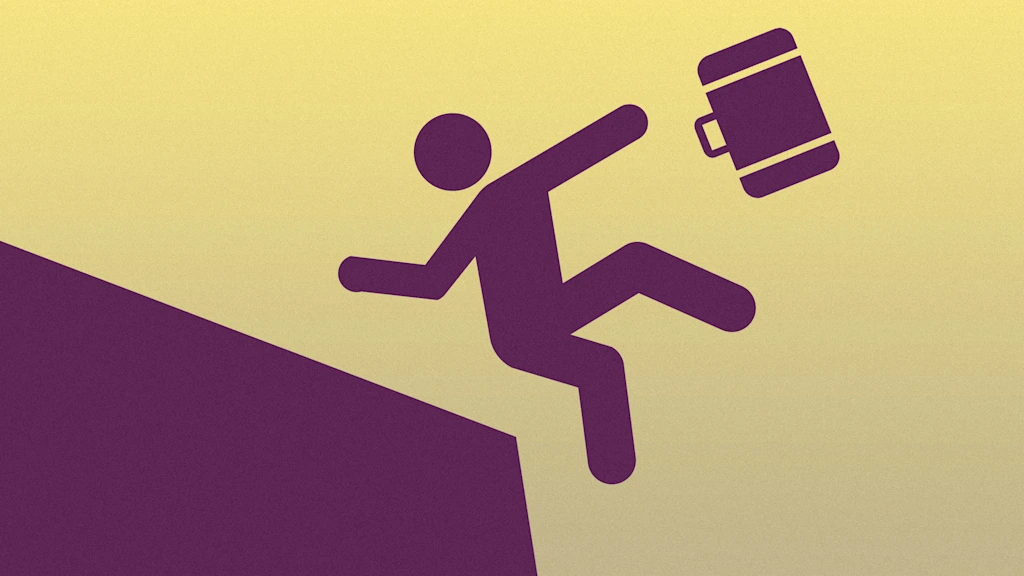#risk-taking
#risk-taking
[ follow ]
#entrepreneurship #leadership #career-change #decision-making #innovation #resilience #personal-development
Careers
fromBusiness Insider
2 weeks agoI got laid off from Amazon 3 years ago, and it changed the entire trajectory of my life - I couldn't be happier
Ricci Armani used his Amazon severance to pursue stand-up comedy, supplementing income with part-time retail and accepting uncertainty while chasing his dream.
fromNature
1 month agoPhD students' taste for risk mirrors their supervisors'
A researchers' propensity for risky projects is passed down to their doctoral students - and stays with trainees after they leave the laboratory, according to an analysis of thousands of current and former PhD students and their mentors.
Science
fromFast Company
1 month agoHow to build safe danger and make teams come alive
Most people tend to think safety and danger are opposites. But it's more useful to think of them as dance partners. Safety gives us solid footing; danger gives us movement. The emotional sweet spot between the two-where you feel safe but challenged enough to discover something new-is something I call Safe Danger. I base entire team-building and community-building workshops around moments of safe danger.
Business
Careers
fromFortune
2 months agoL'Oreal CHRO cut her teeth at luxury brands Chanel and Kiehl's-like Walmart's CEO she says the secret to her success was always saying yes | Fortune
Saying yes to small, unglamorous tasks and taking bold, risky assignments led to career advancement, later balanced by strategic choices about which opportunities to accept.
fromBusiness Insider
2 months agoAT&T leader shares her 2 favorite interview questions and dealbreaker answers
A few years ago, the head of business operations launched a startup, now operating as Cricket Wireless, a subsidiary of AT&T. Cricket Wireless is now worth over $6 billion and has more than 13 million customers, a spokesperson for AT&T said. During that process, she had the opportunity to build her dream team - and her goal was to find employees who were willing to think big. Through trial and error, Van Buskirk discovered two interview questions that she still uses to help her identify the right candidates.
Business
fromPsychology Today
4 months agoWho Do People Make Risky Decisions?
Recently I was invited to participate in a podcast on risky decisions. The specific incident was the death of a hiker who had deliberately chosen a route that was known to be really dangerous. Why would any rational person choose to expose himself or herself to this degree of risk? That's what my interviewer asked me. But beyond the question was the interviewer's mindset - you have to be crazy to voluntarily put yourself in a position where you are risking your life.
Science
fromwww.theguardian.com
5 months agoI used to embrace my manic episodes until a therapist's advice set me straight, and out on a butterfly hunt | Claire Jackson
Please sit down, I begged my neighbour, who was leaning across the car gearstick, arm stretched around my headrest. My pleas for him to fasten his seatbelt were futile. Now he was jigging about, gesticulating wildly as he revealed his latest plans. He had told me before about the script he was writing for Gary Oldman. I hadn't thought too much of it, then all writers have to be a bit grandiose, I had reasoned, otherwise they wouldn't achieve anything.
Mental health
fromConde Nast Traveler
5 months agoWhy We're Braver on Vacation, According to Psychologists
Both times, bungee jumping had presented itself neatly packaged, properly regulated and entirely safe, and I declined with little-to-no hesitation. Zambia, on the other hand, met me differently. On a warm, windless day over the Zambezi River, standing in front of a rickety platform with little to suggest international safety compliance, I found myself ready to jump. Not metaphorically-genuinely, wholeheartedly ready. I would have done it too, if not for the people with me urging otherwise-and that says something.
Psychology
fromBig Think
5 months agoNate Silver: Habits of highly successful risk-takers
The most surprising and impactful new stories delivered to your inbox every week, for free. What does it take to make bold decisions when the odds aren't clear? Statistician Nate Silver explains why the best risk-takers aren't reckless. They're strategic, evidence-driven, and comfortable acting without perfect information. Silver shares habits that separate success from failure in competitive environments, to help you become more comfortable with risking it all.
US politics
Tech industry
fromBusiness Insider
5 months agoLeadership and business lessons from TSMC's 94-year-old billionaire founder, Morris Chang
Morris Chang founded TSMC and built the world’s largest chipmaker by prioritizing operational excellence, focused learning, calculated risk-taking, and following interests over money.
Cryptocurrency
fromLondon Business News | Londonlovesbusiness.com
9 months agoCryptocurrency encourages financial risk-taking, especially in poorer individuals - London Business News | Londonlovesbusiness.com
Cryptocurrency information promotes risk-taking behavior in unrelated investments.
The effect is particularly strong among individuals with low financial well-being.
[ Load more ]










